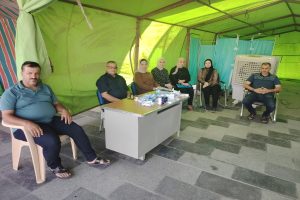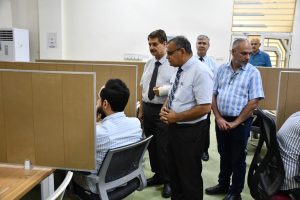Mycotoxins and their effects on humans and animals are the focus of a scientific symposium held by the College of Medicine
In a scientific symposium on mycotoxins and their effects on humans and animals that was organized and held by the University of Diyala / Faculty of Medicine, Prof. Dr. Lama Taha Ahmed gave a talk in the continuing education hall. The diverse mycotoxins that are produced by various fungi under particular circumstances were discussed in that symposium, along with their types and chemical composition.
These toxins are secondary metabolites of organic chemicals that get into the bodies of humans and animals through contaminated food and fodder. These toxins are usually produced by contamination of food crops, poor storage, or during the process of transporting agricultural crops from one place to another. Animals such as cows, calves, chickens, and fish that consume toxin-contaminated fodder and subsequently have their flesh consumed by people become poisoned. Aflatoxin, okra, fumonisins, and other toxins that affect the liver, kidneys, and neurological system are examples of these toxins.






